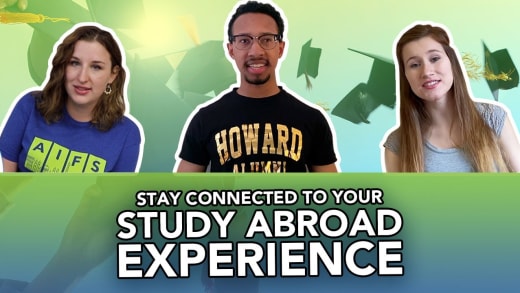Become an Ambassador
Alumni Ambassador Program

Do you want to share your study abroad experiences with other students either on campus or online? Do you want to do more?
The AIFS Alumni Ambassador program is a professional development and leadership program designed to allow a limited number of exceptional AIFS alumni the opportunity to promote studying abroad on their campus, develop skills relevant to their career aspirations, and share their experience with interested students. Applications open each year in mid-March for the following academic year.

Do this for others – do this for yourself
The AIFS Alumni Ambassador program provides an opportunity to process your time abroad with a community of your peers who know what it’s like to have a much longer answer to the question of “How was your time abroad?” than “It was amazing!” The AIFS Alumni Ambassador program is a professional development and leadership program designed to allow a limited number of exceptional AIFS alumni the opportunity to promote studying abroad on their campus, develop skills relevant to their career aspirations, and share their experience with interested students. Currently less than 10% of the US college population studies abroad, so there is a lot of room for growth. As an Alumni Ambassador, your primary responsibility is to help increase awareness at your university about studying abroad.